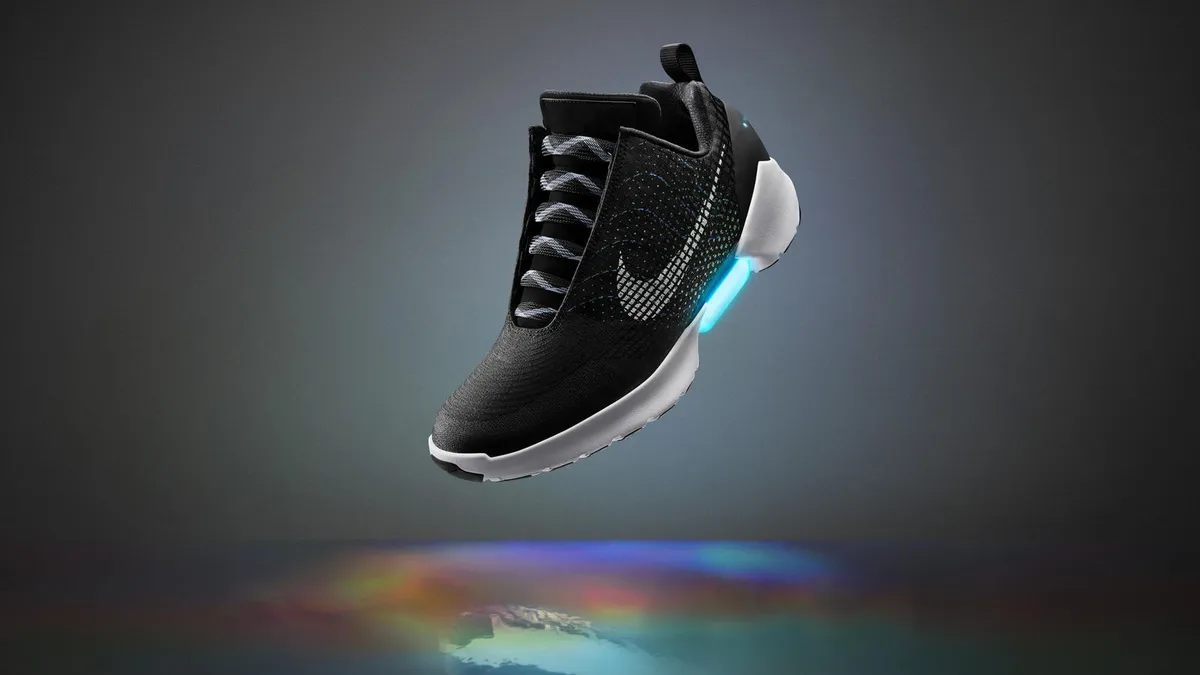Dive Brief:
- Nike's long-awaited HyperAdapt 1.0, its self-lacing shoe, will debut in select U.S. stores on Nov. 28, the Monday after Thanksgiving, and will be available exclusively to members of the Nike+ loyalty program, the athletic apparel giant confirmed to CNBC.
- The launch date was first announced in a tweet by a Nike spokeswoman, and CNBC subsequently learned that the company plans to announce prices and information on how to schedule an appointment to try the shoes in the coming weeks.
- HyperAdapt 1.0 owners press a "+" button near the tongue of the shoe to tighten the laces and a "-" button to loosen them. Nike first announced the battery-powered shoe last March at its innovation summit, after hinting at its development in late 2015.
Dive Insight:
As foretold by famous 1980s-based time traveler Marty McFly, self-lacing shoes are finally here, and they look a lot cooler than they did in "Back to the Future 2" (or maybe the original design from the movie just hasn't aged well).
It's no surprise that Nike chose to debut the shoe during the busiest shopping season on the calendar. While it initially seems as though Nike is counter-marketing against the throng of Cyber Monday promotions with a big-time brick-and-mortar special, the fact that the shoe is available only for members of its Nike+ loyalty program makes it a nice tie-in between its mobile app, online presence and physical stores, as well as a nifty strategy for getting more people to join the loyalty program.
The HyperAdapt arrives at a critical time for Nike. In late June, the company reported that fiscal fourth quarter revenues increased 6% to $8.2 billion (up 9% excluding currency fluctuations), but profit fell 2% and North American sales were flat. Analysts have questioned the staying of power of Nike's footwear sales, and archrival Adidas is experiencing a resurgence, buoyed by new releases of vintage styles and more casual footwear.
Will the HyperAdapt match the hype? There has been so much hype, and there may be so many BTTF fans now old enough to have large disposable incomes that it may not even matter. If consumers actually like the shoe for its own attributes, and not just as a pop culture souvenir, it will be interesting to see how it affects future show developments. Maybe McFly can tell us how it all turns out.














